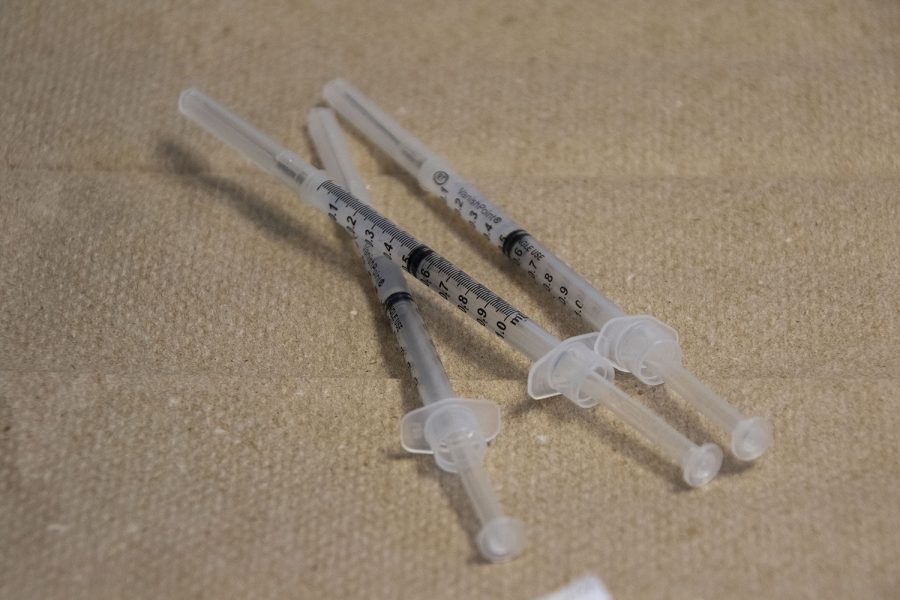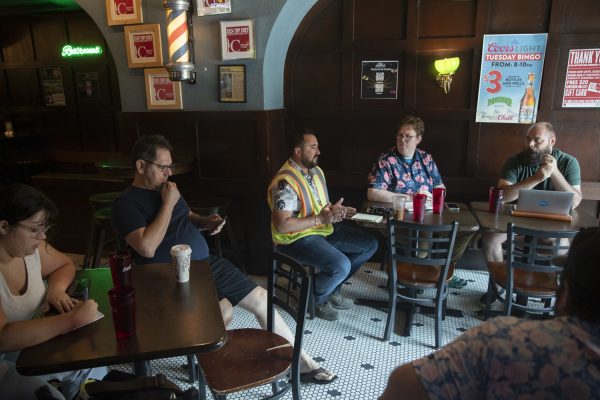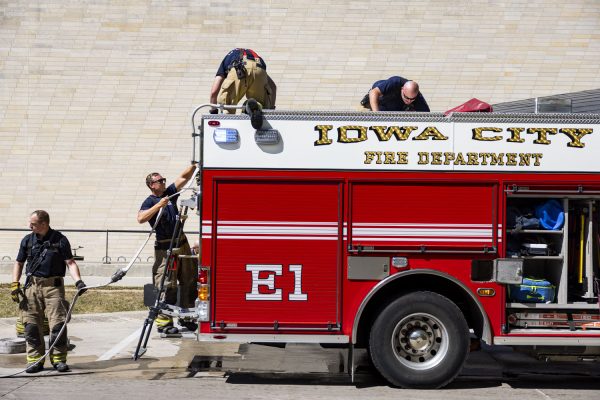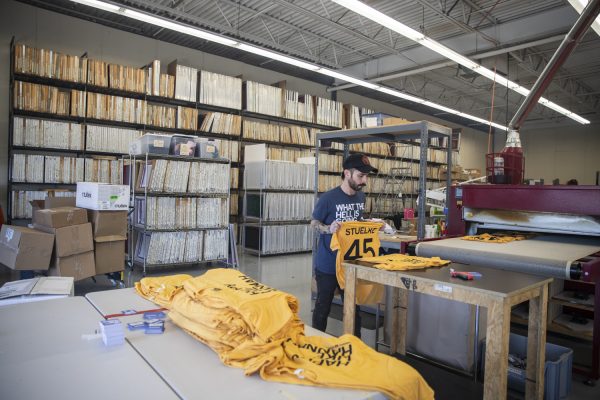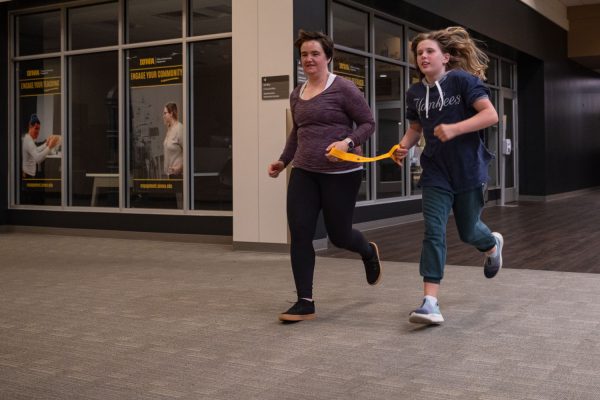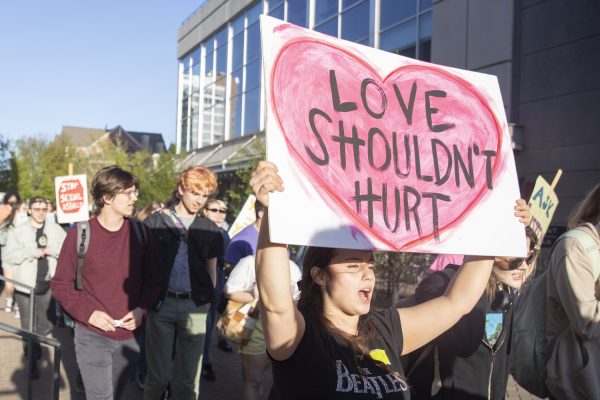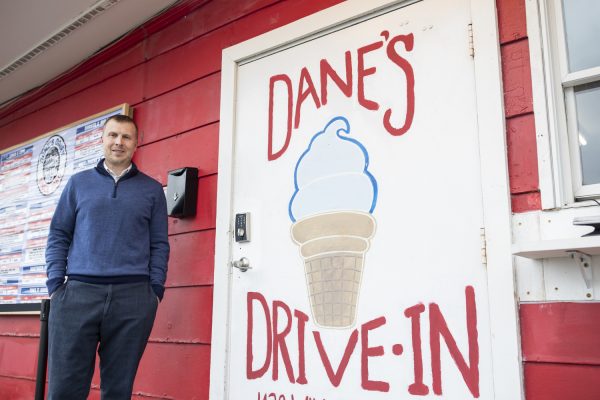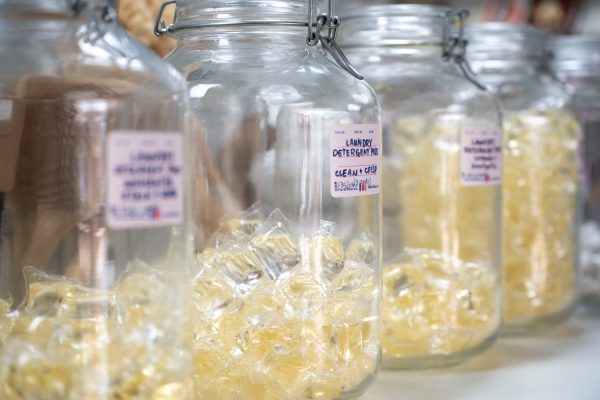Restaurant industry excluded from early phases of COVID-19 vaccination
Although deemed essential workers, frontline employees working in the restaurant and foodservice industry are not among the priority groups eligible to receive the early phases of the COVID-19 vaccination in Iowa.
U of Iowa students given first round of vaccinations on Thursday, Jan 28, 2021. Syringes wait to be used. Each has the Moderna Covid-19 vaccine in it.
February 15, 2021
As COVID-19 vaccinations are being distributed to eligible parties throughout Iowa in phase 1B, many workers that were deemed essential at the beginning of the pandemic are questioning when it will be their turn to be vaccinated.
According to the Iowa Department of Public Health, phase 1B includes all persons 65 years or older, as well as specific populations that are at high risk of contracting and spreading COVID-19.
One tier of the special populations eligible to be vaccinated are frontline essential workers in food, agriculture, distribution, and manufacturing sectors who live or work in non-social distanced settings.
However, this excludes those working in the restaurant and food service industry.
Following Iowa Gov. Kim Reynolds’ decision to lift certain restrictions for bars and restaurants and discontinue the state wide mask mandate, restaurant workers say they feel less protected and are facing risk of contracting and spreading COVID-19.
“As a nation, we kind of message out to these people that they’re essential, but some of them aren’t included in the early parts of vaccine distribution,” Iowa City Nighttime Mayor Joe Reilly said. “I just wish there would be some clarification as to why they’re not on there, when you know anecdotally, we can just observe they’re at greater risk, and not only greater risks, but also there’s a higher chance to have a transmission, based on just the nature of their work.”
Reilly said frontline workers at bars and restaurants have personal protective equipment, but not to the extent that other frontline workers have, leaving them more vulnerable to COVID-19.
RELATED: Iowa partners with Microsoft to create new vaccine scheduling system
Johnson County Public Health Community Manager Sam Jarvis said he is unsure why restaurant and foodservice industry workers were not included in the early phases of the COVID-19 vaccination, as no explanations were given from state officials.
“We do not know why certain occupations were not prioritized in phase 1B, as opposed to what we’ve seen in other states who have included those occupations deemed essential,” Jarvis said. “The state Disease Advisory Committee met several times, and from what we were told, had fairly lengthy conversations about prioritization and really looked at addressing the toughest question right now, which is who gets vaccinated first.”
University of Iowa first-year student Abinadi Rivera-Aguirre said she works at Sakari Sushi Lounge in Des Moines, Iowa, while she’s home from school. At the UI, she said she works at Hillcrest Dining Hall.
Rivera-Aguirre said she is supposed to receive the vaccine as a UI Housing and Dining employee, but she has not received an official confirmation alerting her as to when she will receive it.
Rivera-Aguirre said she thinks Reynolds rolling back health and safety restrictions in restaurants, has caused restaurant workers to jeopardize their health and wellbeing just to make minimum wage to support themselves during this time.
“We’re just sacrificing everything, so people can eat, and that is putting ourselves at risk. I can understand why people are tired and just want to give up, but it’s just disappointing because we deserve that vaccine,” Rivera-Aguirre said.
Rivera-Aguirre said she finds it ironic that restaurant workers have been deemed essential and their services are in high demand, yet they are not paid a living wage, have health benefits, or are prioritized to receive the vaccine.
RELATED: Iowa City leaders, University of Iowa professors, express concern at end of state-wide mask mandate
“There’s so many industries that are just being forced to be on the front lines right now,” Rivera-Aguirre said. “People don’t want to give food service workers a minimum wage, it’s like well you’re not paying them anything, they don’t have a health insurance, and you’re not even giving them a vaccine during this pandemic so you really want them to die, but you want them and their services and like everything they can offer.”
Jarvis said one primary difficulty facing Johnson County right now is the large demand for COVID-19 vaccinations, but there is currently a limited supply of vaccines that can be distributed to eligible populations.
He said as of right now, many public health officials are unsure on how the vaccine will affect transmission rates. He said it will help reduce the severity of the illness and the symptoms associated with it, but he encourages all workers to continue following mitigation measures.
“Ensuring that when you’re around others inside enclosed areas, it’s so very important to continue to wear masks to remain physically distant when possible,” Jarvis said. “And certainly we recognize that that’s not always the case in restaurants and other establishments and so doing those things as best as possible, are good ways to protect ourselves and each other. Other things we’ll continue to emphasize to everyone is that if you’re ill, please stay home.”



